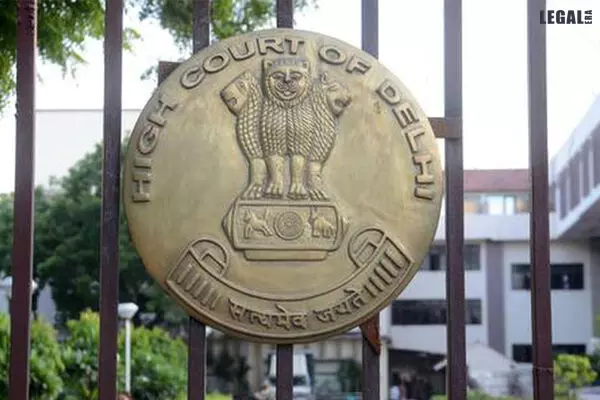- Home
- News
- Articles+
- Aerospace
- Artificial Intelligence
- Agriculture
- Alternate Dispute Resolution
- Arbitration & Mediation
- Banking and Finance
- Bankruptcy
- Book Review
- Bribery & Corruption
- Commercial Litigation
- Competition Law
- Conference Reports
- Consumer Products
- Contract
- Corporate Governance
- Corporate Law
- Covid-19
- Cryptocurrency
- Cybersecurity
- Data Protection
- Defence
- Digital Economy
- E-commerce
- Employment Law
- Energy and Natural Resources
- Entertainment and Sports Law
- Environmental Law
- Environmental, Social, and Governance
- Foreign Direct Investment
- Food and Beverage
- Gaming
- Health Care
- IBC Diaries
- In Focus
- Inclusion & Diversity
- Insurance Law
- Intellectual Property
- International Law
- IP & Tech Era
- Know the Law
- Labour Laws
- Law & Policy and Regulation
- Litigation
- Litigation Funding
- Manufacturing
- Mergers & Acquisitions
- NFTs
- Privacy
- Private Equity
- Project Finance
- Real Estate
- Risk and Compliance
- Student Corner
- Take On Board
- Tax
- Technology Media and Telecom
- Tributes
- Viewpoint
- Zoom In
- Law Firms
- In-House
- Rankings
- E-Magazine
- Legal Era TV
- Events
- Middle East
- Africa
- News
- Articles
- Aerospace
- Artificial Intelligence
- Agriculture
- Alternate Dispute Resolution
- Arbitration & Mediation
- Banking and Finance
- Bankruptcy
- Book Review
- Bribery & Corruption
- Commercial Litigation
- Competition Law
- Conference Reports
- Consumer Products
- Contract
- Corporate Governance
- Corporate Law
- Covid-19
- Cryptocurrency
- Cybersecurity
- Data Protection
- Defence
- Digital Economy
- E-commerce
- Employment Law
- Energy and Natural Resources
- Entertainment and Sports Law
- Environmental Law
- Environmental, Social, and Governance
- Foreign Direct Investment
- Food and Beverage
- Gaming
- Health Care
- IBC Diaries
- In Focus
- Inclusion & Diversity
- Insurance Law
- Intellectual Property
- International Law
- IP & Tech Era
- Know the Law
- Labour Laws
- Law & Policy and Regulation
- Litigation
- Litigation Funding
- Manufacturing
- Mergers & Acquisitions
- NFTs
- Privacy
- Private Equity
- Project Finance
- Real Estate
- Risk and Compliance
- Student Corner
- Take On Board
- Tax
- Technology Media and Telecom
- Tributes
- Viewpoint
- Zoom In
- Law Firms
- In-House
- Rankings
- E-Magazine
- Legal Era TV
- Events
- Middle East
- Africa
Delhi High Court Rules in Favour of Strix Ltd. in Patent Infringement Case

Delhi High Court Rules in Favour of Strix Ltd. in Patent Infringement Case
The Delhi High Court has ruled in favour of Strix Ltd., a company that makes temperature control systems and cordless interfaces for water boiling devices, in a patent infringement lawsuit against Maharaja Appliances Limited over unauthorised use of their patented ‘Liquid Heating Vessel’.
Strix Ltd. claimed that it had secured the Indian patent in 2005 but had been using the technology since 2002. The company filed a lawsuit after discovering that Maharaja Appliances was selling kettles with a similar temperature control system.
Maharaja Appliances challenged the legitimacy of the patent lawsuit, originally asserting that they sourced heating elements from Strix. However, they later transitioned to a Chinese supplier, believing that this supplier also possessed a patent.
In the course of the legal proceedings, an interim injunction was granted in favour of Strix. After a thorough examination of the claims made in the suit patent and a comparison with the products offered by Maharaja Appliances, Justice Prathiba M. Singh determined that the defendant's kettles were indeed infringing upon the suit patent. The Court rejected the defendant's attempt to challenge the patent's validity based on three prior art documents, ruling that two of them did not meet the criteria for valid prior art.
The Court found that the third document (European Patent EP0469758) was similar to the suit patent, but that the suit patent achieved the same result through a different mechanism, making it distinct.
The Court also dismissed the defendant's contention that the suit patent was not functional in India, noting that Strix had successfully commercialised its patent in the Indian market.
The Court used a precedent set by the UK Court of Appeal to calculate damages, noting that a reasonable royalty can be calculated if the patent holder cannot prove specific losses. As a result, the Court awarded Strix ₹81,44,925, including ₹50 lakhs in damages and the rest in actual costs.



